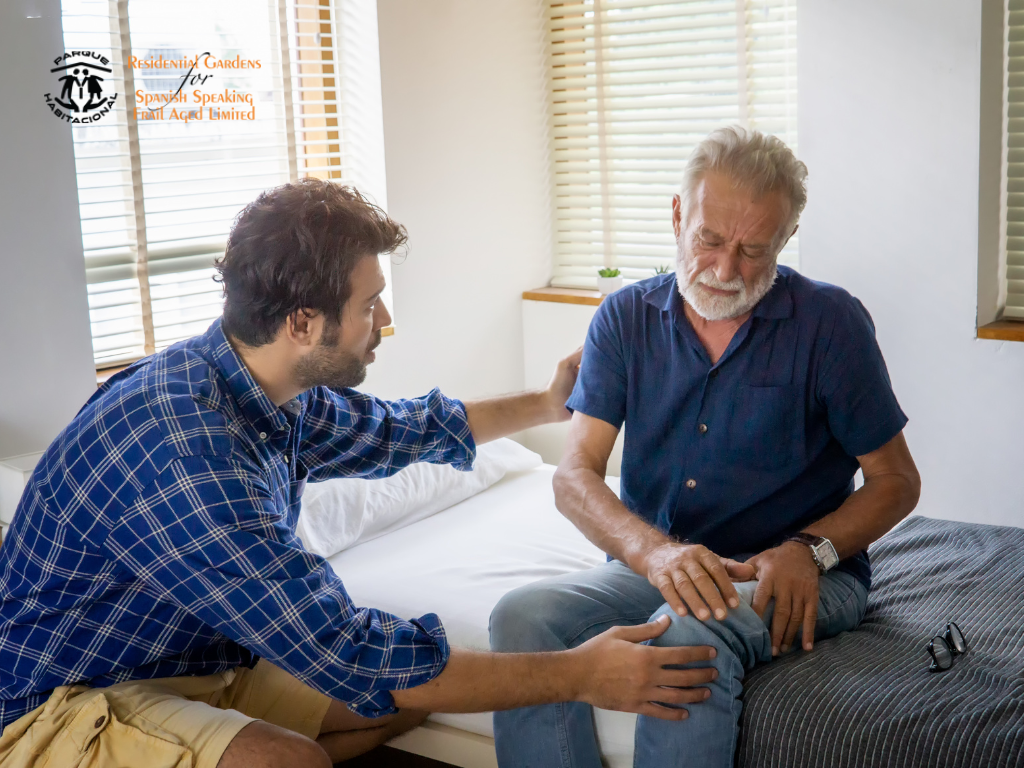High care in residential aged care sydney refers to intensive support and medical care provided to elderly individuals who have significant or complex health care needs. This level of care is typically necessary for residents who require continuous nursing services due to severe physical or cognitive impairments.
What Defines High Care in the Context of Residential Aged Care?
High care in residential aged care settings is characterized by the provision of 24-hour nursing care and support. This includes assistance with daily activities, medical monitoring, and administration of treatments. Facilities designed for high care are equipped to handle more severe health conditions that require constant medical attention.
Why Are Specialised Health Services Critical in High Care Settings?
Specialised health services are essential in high care settings because they ensure that all medical and care needs of the residents are met promptly and effectively. These services improve the quality of life for residents by managing pain, treating chronic conditions, and providing palliative care. They also offer reassurance to families, knowing that their loved ones are receiving professional and compassionate care tailored to their specific health requirements.
Core Medical Services Offered in High Care Facilities

High care facilities in Sydney are equipped to provide a comprehensive range of medical services to meet the varied and complex needs of their residents.
What Are the Standard Medical Services Provided in High Care Residential Aged Care Facilities in Sydney?
Standard medical services in high care facilities typically include but are not limited to:
- Comprehensive medical assessments to evaluate resident needs and plan care.
- Medication management and administration to ensure that all residents receive their prescribed treatments accurately and on time.
- Wound care managed by qualified nurses, especially for residents with diabetes or mobility issues.
- Physiotherapy and rehabilitation services to assist residents with recovery from injuries or to manage chronic conditions.
- Palliative care to provide comfort and quality of life for residents nearing the end of life.
How Do These Services Cater to the Complex Health Needs of Residents?
These services are designed to provide holistic care that addresses both the physical and emotional health of residents. Facilities ensure that medical services are personalized to each resident’s specific conditions and preferences, which is crucial for treating complex health issues effectively. The availability of diverse medical services within the facility also minimizes the need for hospital visits, which can be distressing and inconvenient for residents.
Role of Specialised Staff in Aged Care Nursing Homes in Sydney

The quality of care in any high care facility greatly depends on the qualifications and expertise of its staff.
What Qualifications and Expertise Do Staff in High Care Facilities Possess?
Staff in high care facilities often include registered nurses, certified aged care nursing homes sydney, general practitioners, and specialists such as physiotherapists and dietitians. These professionals have specific qualifications that are required to address the complex needs of high care residents, including postgraduate training in geriatric care and chronic disease management.
How Does Specialised Staffing Enhance Resident Care and Health Outcomes?
Specialised staffing ensures that residents receive expert care tailored to their individual needs. Nurses and caregivers are trained to monitor changes in health conditions closely and adjust care plans accordingly. Their expertise not only helps in effectively managing chronic conditions and reducing complications but also plays a critical role in enhancing the overall well-being and satisfaction of residents, leading to better health outcomes.
Advanced Medical Equipment and Facilities in High Care
High care facilities in Sydney are equipped with sophisticated medical equipment and facilities to provide comprehensive care for residents with severe health conditions.
What Types of Medical Equipment Are Essential in High Care Settings?
In high care settings, the following types of equipment are crucial:
- Vital Sign Monitors: Devices to continuously monitor blood pressure, heart rate, and oxygen levels, essential for residents with chronic illnesses.
- Infusion Pumps: For controlled administration of medications, nutrients, and fluids intravenously.
- Respiratory Equipment: Oxygen therapy devices and ventilators to assist residents with breathing difficulties.
- Wound Care Equipment: Special dressings and devices to manage and prevent pressure ulcers.
- Lifting and Mobility Aids: Hoists and specialized beds to assist residents with limited mobility.
How Do Facilities in Sydney Equip Themselves to Handle Severe Health Conditions?
Facilities in Sydney ensure they are adequately equipped to handle severe health conditions by investing in modern medical devices and maintaining close partnerships with medical suppliers. They also conduct regular staff training to ensure that caregivers can use the equipment safely and effectively. Moreover, they keep comprehensive medical records and have protocols in place for emergency responses, ensuring residents receive immediate care.
Managing Chronic Illnesses and Complex Health Conditions\
Chronic illnesses require consistent monitoring and tailored treatment approaches in aged care.
What Approaches Are Taken to Manage Chronic Illnesses in High Care Residents?
- Regular Monitoring: Routine health checks are conducted to assess vital signs, blood sugar levels, and other critical parameters.
- Medication Management: Ensuring medications are administered correctly and on time, reducing the risk of complications.
- Therapeutic Interventions: Physiotherapy and occupational therapy to maintain mobility and manage pain.
- Dietary Planning: Special diets tailored to individual needs, particularly for those with diabetes, cardiovascular diseases, or digestive issues.
How Are Treatment Plans Customized to Individual Needs in Aged Care Nursing Homes?
- Individual Assessments: Residents undergo thorough health assessments upon admission and at regular intervals to identify specific needs.
- Care Team Collaboration: Nurses, general practitioners, specialists, and therapists collaborate to develop and revise care plans.
- Resident and Family Input: Residents and families are involved in the planning process to ensure preferences and concerns are considered.
Palliative and End-of-Life Care Services in High Care
Palliative and end-of-life care focus on comfort and dignity for residents in their final stages of life.
How Do High Care Facilities in Sydney Approach End-of-Life Care?
- Holistic Care Plans: Plans address not only physical symptoms but also emotional, spiritual, and social needs.
- Pain Management: Expert use of medication and therapy to alleviate pain and discomfort.
- Family Support: Counselling and assistance for families to cope with the emotional impact of the situation.
What Support Services Are Available for Residents and Their Families During End-of-Life Stages?
- Counselling Services: Grief and bereavement support for families and friends.
- Advance Care Planning: Helping residents establish directives to ensure their end-of-life wishes are respected.
- Respite Care: Providing temporary relief for family caregivers.
- Spiritual Support: Access to chaplains or spiritual advisors for residents seeking spiritual comfort.
Collaboration with Healthcare Providers and Specialists

In high care facilities, collaborating with external healthcare providers and specialists is integral to delivering comprehensive care.
How Do High Care Facilities Collaborate with External Healthcare Providers and Specialists?
- Referral Networks: Facilities maintain strong referral networks to ensure residents receive timely specialist care when needed. This includes partnerships with hospitals, rehabilitation centres, and specialist clinics.
- On-Site Visits: Many facilities arrange regular visits by specialists, such as geriatricians, physiotherapists, dietitians, and palliative care experts.
- Telehealth Integration: Telehealth services allow for immediate specialist consultations and support without the need for residents to travel.
What Role Do Specialists Play in Enhancing the Care Provided at Aged Care Nursing Homes?
- Diagnosis and Treatment: Specialists help diagnose complex conditions and develop tailored treatment plans for each resident.
- Therapeutic Support: Physiotherapists and occupational therapists assist with rehabilitation and mobility, improving residents’ physical capabilities.
- Nutritional Guidance: Dietitians plan special diets that cater to specific health conditions and improve residents’ overall health.
Continuous Health Monitoring and Assessments
Ongoing health monitoring is vital for managing chronic conditions and ensuring early detection of potential health issues.
How Is Continuous Health Monitoring Implemented in High Care Settings?
- Routine Health Checks: Regular assessments of vital signs, medication compliance, and general health conditions are carried out by nursing staff.
- Digital Records Management: Electronic health records keep track of each resident’s medical history, allowing seamless access for monitoring.
- Health Alert Systems: Devices that detect falls, sudden changes in vital signs, or emergencies are used to provide rapid alerts to nursing staff.
What Technologies and Practices Are Used to Ensure Ongoing Assessment and Timely Interventions?
- Wearable Devices: Residents can wear health monitors that track heart rate, blood pressure, and other vitals in real time.
- Non-Invasive Sensors: Sensors placed around residents’ rooms detect changes in movement, indicating potential health issues.
- Multidisciplinary Meetings: Regular case discussions involving all members of the care team ensure a holistic approach to each resident’s health.
Conclusion

How Do Specialised Health Services in High Care Facilities Improve the Quality of Life for Residents?
- Individualised Care: Tailored care plans ensure residents’ unique health needs and preferences are met, improving their comfort and dignity.
- Advanced Medical Support: Access to specialists and advanced equipment helps manage complex conditions more effectively, reducing hospital visits.
- Emotional Wellbeing: A comprehensive support network provides reassurance to residents and families, reducing stress and promoting peace of mind.
Why Is Choosing the Right High Care Facility Important for Health Outcomes?
- Quality Assurance: Accredited facilities follow strict health guidelines to provide the highest standard of care.
- Tailored Support: Each facility offers unique services that cater to different health needs and personal preferences.
- Family Involvement: Facilities that encourage family participation in care decisions ensure a more supportive environment.



